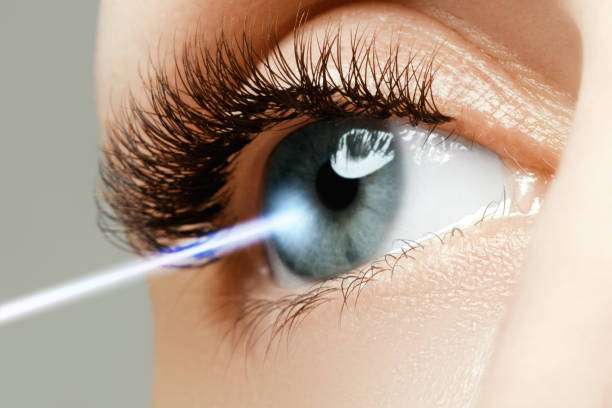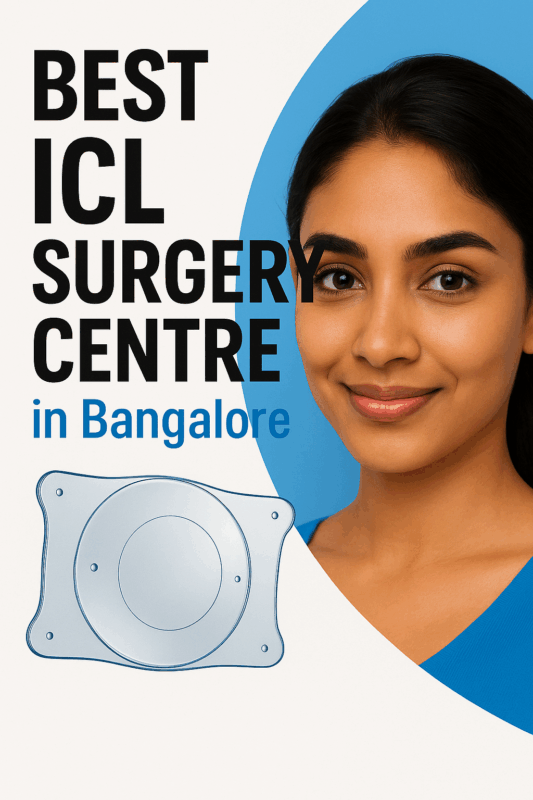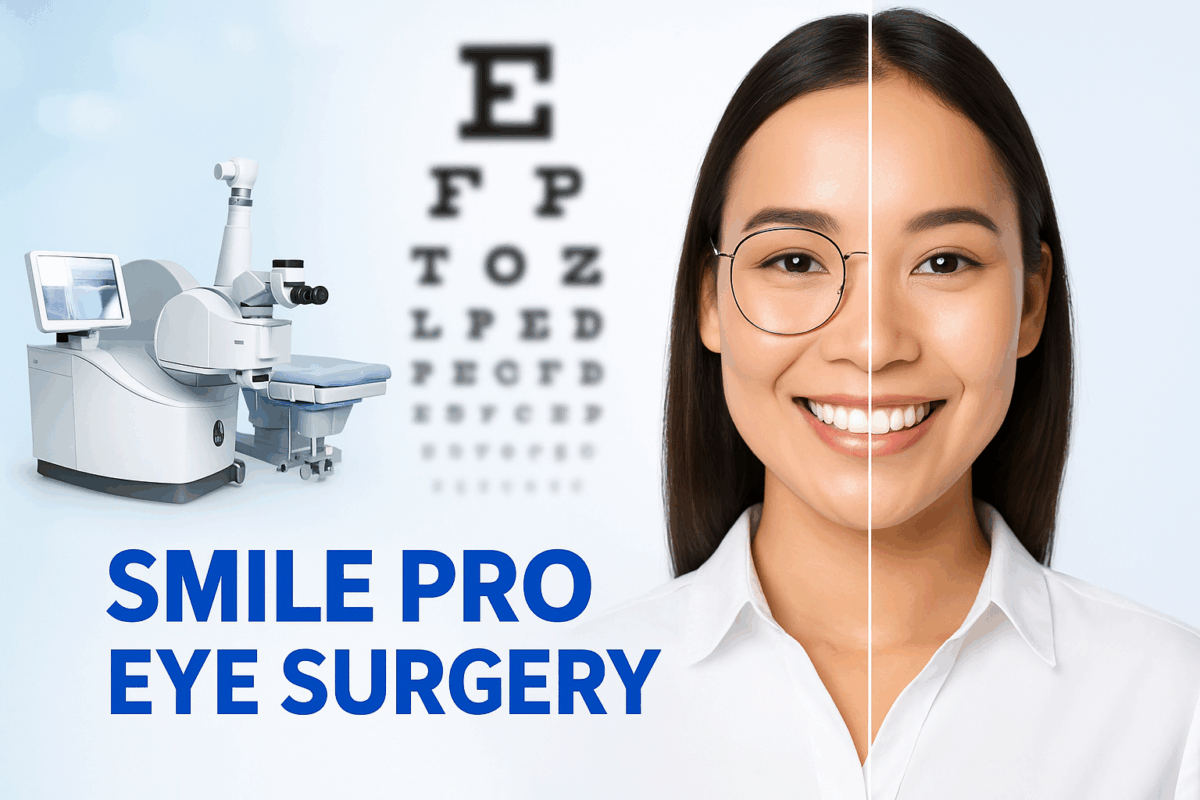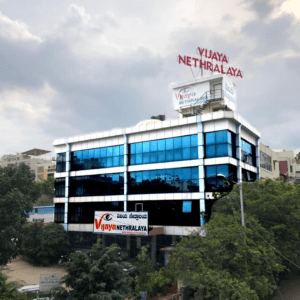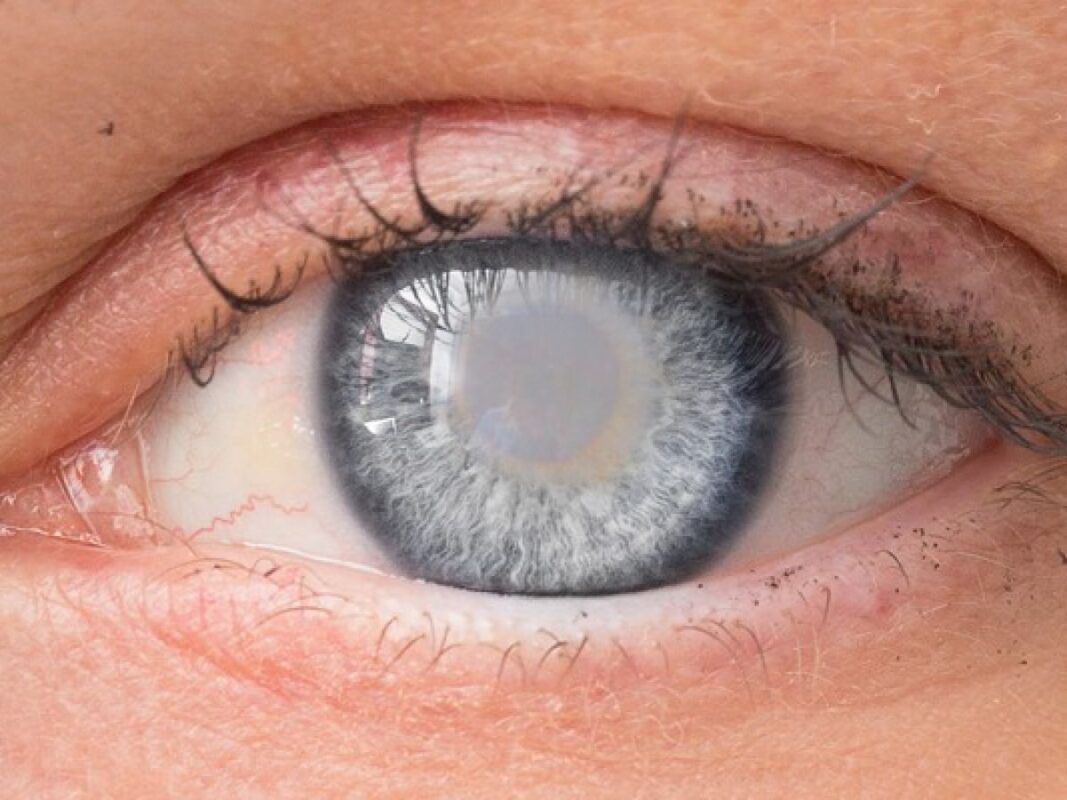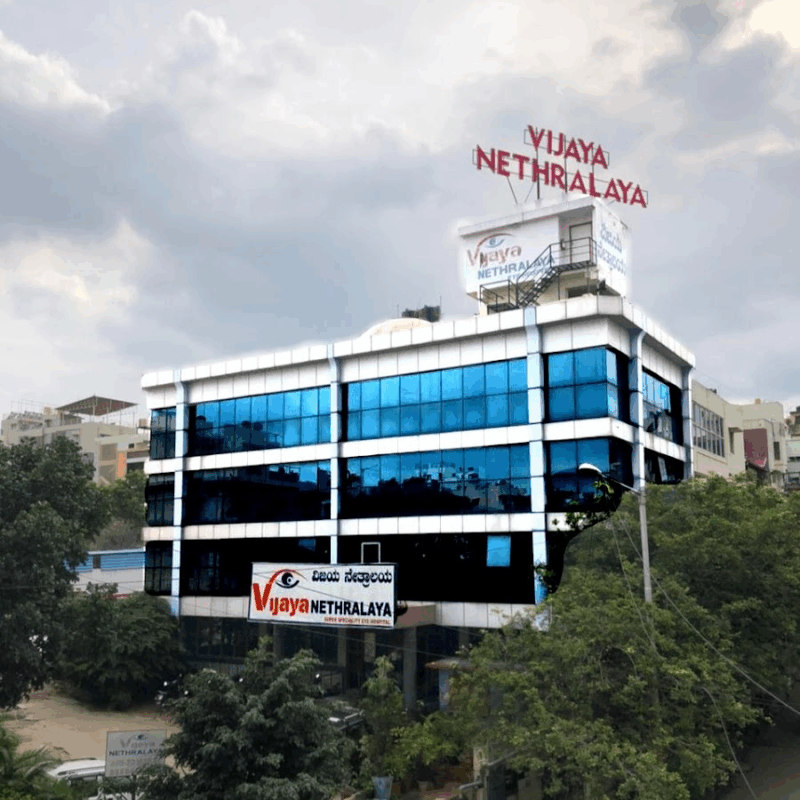Introduction:
LASIK is a popular surgical treatment for correcting vision issues. But there are many other amazing ways in which vision can be corrected. PRK surgery is one such method that is gaining popularity among people who are looking for a permanent solution to vision problems. Read this article and understand the procedure, cost, and much more with the help of this PRK surgery cost guide.
What is PRK?
LASIK, or laser-assisted precision keratomileusis, is a well-known alternative to LASEK and PRK. It is an eye surgical procedure in which the refractive errors of vision are corrected. It is a vision correction procedure that is performed on the front of the eye to treat a person’s myopia (nearsightedness), hyperopia (farsightedness), and astigmatism. PRK surgery or photorefractive keratectomy can be used to treat refractive errors of the eye.

Photorefractive keratectomy (PRK) is a type of refractive surgery that uses a laser to change the shape of your cornea and improve the way light is focused on your retina. If you’re considering PRK surgery, talk to your ophthalmologist about whether it’s the right option for you.
The purpose of photorefractive keratectomy is to fix your refractive error and enhance your vision. PRK may lower the number of times you need to wear eyeglasses or contact lenses. In some instances, it might even let you not use them at all.
Is PRK right for you?
If you have dry eyes or thin corneas, PRK may be a good choice for you when considering refractive surgery. Some other types of refractive surgery, such as LASIK, are not recommended for those with these conditions.
If you live an active lifestyle or have a physically demanding job, PRK may be a better option for you than LASIK or another refractive surgery. This is because PRK doesn’t involve cutting a flap in your cornea like LASIK does. With LASIK, there’s a greater risk that you could accidentally dislodge the corneal flap, causing vision problems.
PRK may be recommended for people who have certain lenses put in during cataract surgery in order to fine-tune their vision. The following requirements must be met in order to have PRK:
• You should be 18 years or older. Ideally, over 21 years old, when vision is more likely to have stopped changing.
• Your eye prescription should not have changed in the last year.
• Your refractive error must be one that can be treated with PRK.
• Your corneas need to be healthy.
• Your overall eye health must be generally good.
• You need to have realistic expectations about what PRK can and cannot do for you.
What are the advantages of PRK?
The simple, fast one-step procedure for this eye surgery takes only 3-5 minutes for each eye, without the need for a corneal flap, which eliminates any related medical condition. This makes it especially suitable for those with an active lifestyle, who participate in contact sports. It is also a safer option for those with high-risk jobs such as air force pilots, military personnel, navy divers, and more. Those who are not suitable for LASIK due to a thin cornea and high myopia can also opt for this alternative with minimal risk of dry eye, a common side effect of LASIK eye surgery.
What are the risks and side effects of PRK?
There are several risks associated with a photorefractive keratectomy, or PRK, surgery. Some of these risks include:
– Scars on your cornea
– Corneal haze
– Infection
– Glare and halo around lights, especially at night
– Eye pain, irritation and/or watering
– Sensitivity to light
In some cases, a medicine called mitomycin C is used during surgery in order to reduce the chances of haze after the surgery is completed. However, there are also potential side effects which include:
– Regression (meaning the treatment becomes less effective over time)
– Delayed healing
What is the procedure like?
The PRK procedure from start to finish only takes a few minutes, however, you can expect the entire experience to last a few hours when factoring in prep time and post-op checkups. Before beginning the PRK procedure, your eye surgeon will apply anesthetic drops to help you stay comfortable during the surgery. A special device will be used to hold your eyes open, so you as the patient won’t need to worry about blinking.
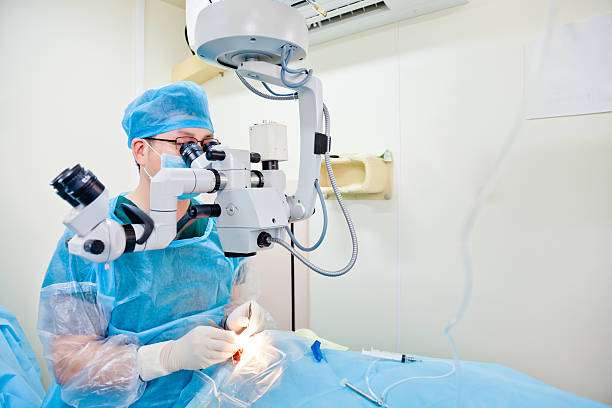
Vijaya Nethralaya will begin your PRK procedure by gently removing the epithelial (outer) layer of your cornea. Next, an excimer laser will be used for reshaping the cornea, helping it properly focus light and correcting refractive errors. A temporary bandage contact lens will be placed over the corneal flap to protect it as the epithelial cells regenerate, and you will be fitted with a temporary patch or shield over the eye. After a brief recovery at Fraser Eye Care center, you will be ready to go home.
What can you do after the surgery?
After your surgery is complete, you will be given a set of oral medications and eye drops to use at home according to your doctor’s instructions. It’s important when applying the eye drops not to touch the tip of the bottle directly to your eye. The bandage contact lens will be removed 4-6 days after surgery, but do not attempt to remove it yourself as this could cause the lens to fall out. If for any reason the contact lens does fall out, please do not try to replace it. Instead, see your doctor as soon as possible so that they can replace the lens for you.
A few days after your surgery, you will start using a combination of eye drops and oral medications. Your vision may be a little blurry for the first few days as your eyes adjust, but this is normal and should not be cause for alarm. You can return to your usual diet and resume regular activities, but you should avoid face washes, hair washes, makeup, and driving until your vision is back to normal. Wearing UV-protective dark goggles is also recommended when going outside for the first six months.
What is the recovery time like?
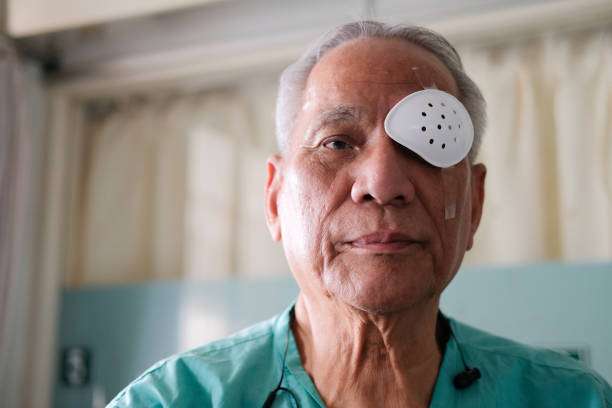
It may take a few weeks for your vision to adjust and become clear enough to start performing finer activities or detailed tasks. After six months, the vision stabilizes and becomes clear. It usually takes 3 – 6 months to completely recover from PRK surgery and achieve clear vision.
How much does it cost?
The cost of PRK surgery can range from 30000-40000 depending on a few different factors such as location, your doctor, and the specifics of your condition.
is PRK surgery safe
prk surgery is a very safe procedure. But, like any other surgery, there are risks involved. Risks are higher in the short term and low in the long term. Safety is a very important factor to consider when making decisions.
is PRK surgery safe
The truth is that PRK surgery is not painful at all. There’s no pain involved in the process because it doesn’t even come close to the pain of LASIK. In PRK, the surface of the cornea is ablated and reshaped, while in LASIK, the flap is replaced with the new cornea and then the flap is flipped back again. In LASIK, once the flap is flipped back, it will start to heal almost immediately.
The healing process of LASIK is faster than that of PRK. After the surgery is completed, you will be able to see as soon as you wake up in the morning. The whole process of recovery is smooth and effortless.
Conclusion:
We hope you enjoyed our article on PRK Surgery: Comprehensive Cost and Procedure Guide. We hope this article has helped you learn more about PRK Surgery and has helped you to better understand the procedure! If you have any questions or concerns about PRK Surgery, please contact us anytime at +918023183834. Thank you for reading, we are always excited when one of our posts can provide useful information on a topic like this.

